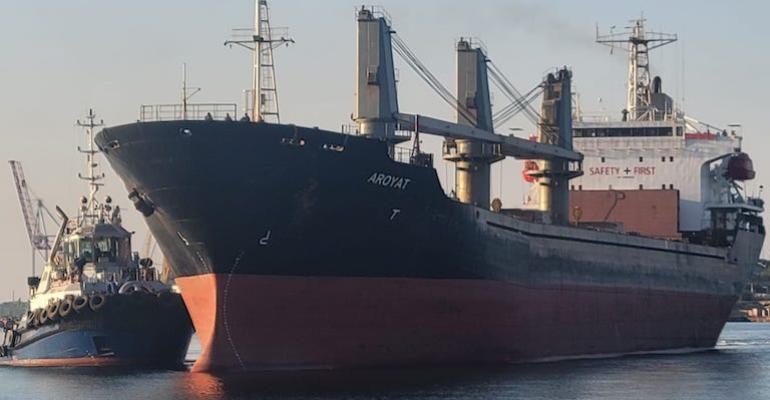Speaking at the opening of the International Union of Marine Insurance (IUMI) annual conference in Edinburgh, Scotland, President Frédéric Denèfle said that operating in geopolitical chaos was an ongoing problem that insurers for the industry faced but it had been exacerbated by the war in Ukraine.
The collapse of the Black Sea grain agreement has left vessels serving the Ukraine under a new Ukrainian declared humanitarian corridor without insurance cover.
“Marine insurers actively supported the creation of the original grain corridor to ensure that Ukrainian exports could still continue. Now that agreement has broken down, marine insurers are in discussions with the Ukrainian government to provide cover for the vessels moving Ukrainian cargoes.”
Inflation that has resulted from the Covid pandemic and the war in Ukraine has already manifested itself in the increased cost of claims according to IUMI. The insurance market also faces the challenges of the shift to green energy, clean propulsion and autonomous vessels creating turbulence in the market.
Denèfle was though confident of the sector’s ability to cope. “As the world’s oldest insurance business, our sector has demonstrated its ability to flex to new needs and conditions, both market and macro-economic. I foresee a return to dedicated, experienced teams; a heightened reliance on intelligence and data systems to anticipate the consequences of geopolitical uncertainty; the emergence of local teams underwriting local business in their own areas to challenge fragmentation; an adjustment of market capacities and pricing to fight inflation pressures; and the creation of specialist teams to fully understand the implications of new technologies. Of course, much of this is already happening,” he said.
Copyright © 2024. All rights reserved. Seatrade, a trading name of Informa Markets (UK) Limited.
Add Seatrade Maritime News to your Google News feed.  |

